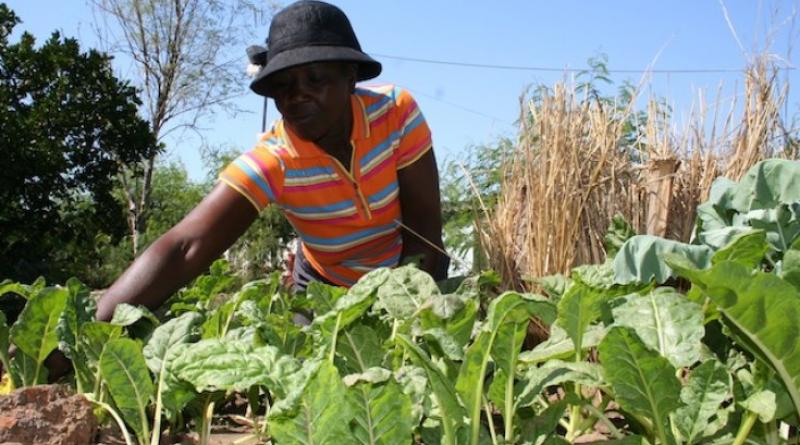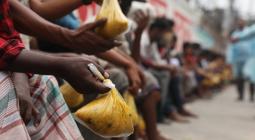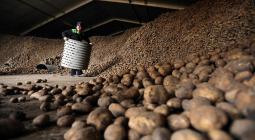Africa: COVID-19 - Additional 23 Million People Face Acute Poverty in Sub-Saharan Africa - Ifad.

About 23 million more people are expected to be pushed into extreme poverty in sub-Saharan Africa this year alone, the president, International Fund for Agricultural Development, Gilbert Houngbo, has said.
This was disclosed in a report published Friday by the World Economic Forum (WEF) titled, What's needed to protect food security in Africa during COVID-19.
He said in most of Africa, people are more likely to die from starvation caused by the economic fallout of the pandemic than from the disease itself.
IFAD is an international financial institution and specialised United Nations agency headquartered in Rome, the UN's food and agriculture hub.
They invest in rural people, empowering them to increase food security, improve the nutrition of their families, increase their income, and as well help in building resilience, through expanding their businesses and taking charge of their own development.
Vulnerable system
The IFAD president said the COVID-19 pandemic has shown us that our current food production, processing, and distribution systems are vulnerable.
"We are hearing from farmers who cannot get seeds or fertiliser for the planting season, their harvests are threatened by a shortage of farm labourers. They cannot sell the produce they do grow because markets are closed. If not addressed, these could lead to serious food shortages across the continent," he said.
The IFAD official said climate and environmental shocks continue to threaten food supplies. He said in Africa, locusts are still ravaging crops, as most of the continent is still emerging from its worst drought in years.
He said in West and Central Africa, the lean season is coming, with 21 million people to face critical food shortages in July and August.
"All this makes recovery from the pandemic even more precarious," the report reads.
Glimmer of hope
Humans have an enormous capacity for innovation during times of adversity," Mr Houngbo said.
"Today, while we are still in the throes of the COVID-19 pandemic, people around the world are already asking themselves - how can we build a better post-pandemic world? As we consider addressing the world's most critical needs, fixing our food systems needs to be at the top of that list."
Before now, the 2019 Global Report on Food Crises (GRFC) showed that over 135 million people in 55 countries and territories are faced with acute food insecurity, and this requires urgent action,
The report showed that about 108 million people in 48 countries in 2016, 124 million people in 51 countries in 2017 and 113 million people in 53 countries in 2018, suffered acute food insecurity.
Of the 135 million in 2019, Africa accounts for 73 million, half of whom are in 36 countries of Africa's 55 countries. Northern Nigeria alone accounts for 5 million, the report said.
War-torn Yemen, Africa's fourth most populous country, DR Congo, and Afghanistan topped the report's list, each respectively having 15.9, 15.6 and 11.3 million people faced with food crises or worse.
Efforts
The IFAD president said some of the efforts being made to cushion the effect of the looming dilemma include, providing inputs such as seeds to farmers, securing supply chains by purchasing and storing products and keeping transport routes open.
"We are also working closely with governments to ensure the right policies are in place to enable these efforts," he said.
He said the outfit recently launched a dedicated Rural Poor Stimulus Facility "to enable us to do more to address the immediate needs of small-scale farmers".
He said the facility was initiated with $40 million with the hope to mobilise at least $200 million from member states and other donors in order to scale up support for the most vulnerable countries and farmers.
Such initiatives are needed to prevent a food crisis and build the resilience required against other shocks," Mr Houngbo said. "COVID-19 is a wakeup call that must be heeded as systemic weaknesses exposed by the virus will be compounded by climate change in the years to come. We must make our food systems more resilient so that our rural communities are better placed to cope with the next drought, flood or epidemic."
Read the original article on Premium Times.
30 May 2020
all Africa




